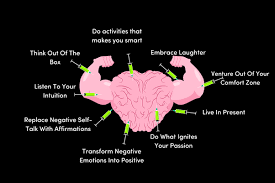Are You Ready for Neuroeducation?

Understanding how we learn has always intrigued educators and psychologists. Pioneers like Dewey, Maslow, and Vygotsky developed some of the first learning theories, but it wasn’t until education joined neuroscience that we’ve made significant advanced in understanding learning.
Researchers now understand that education is a science. Learning as much about how the brain learns and stores information is the next logical step in merging the two fields. The result is neuroeducation, which “serves to apply the scientific method to curricula design and teaching strategies.”
Neuroeducators take into consideration brain physiology and learning. Assuming that the brain has suffered no physical damage, it’s ready to learn, especially when teachers have learned how to use neuroeducation in their classrooms. The field of neuroeducation makes Maslow’s hierarchy seem like old news.
To make the most use of neuroeducation in the classroom, teachers can incorporate these critical findings:
1. Chunk learning in small bites.
Learners remember the first and last parts of lessons. The brain does it’s best when learning new information in small chunks. Mini-lessons are particularly effective instructional strategies because they are short and focus primacy-recency strategies.
2. Create an emotional link to the lesson.
Motivation comes from an emotional connection. That’s why telling stories works so well in instruction. When learners connect with the story first, they are more likely to remember new concepts because of the relationship that has already been built.
3. Make learning active, not passive.
A passive learner is an oxymoron because little learning takes place without active engagement. Increase student participation with gamification, role-playing, simulations, and other hands-on experiences.
4. Use it or lose it.
Avoid teaching concepts without asking students to reconnect with the learning immediately. Teachers who give lectures and then dismiss class without insisting upon application are less likely to see gains in student achievement. Learners must apply new knowledge right away for the brain to remember it.
5. Schedule breaks.
Athletes don’t work out seven days a week. They alternate between work and rest. Rest periods improve muscle strength. Taking a break does the same thing for the brain. Learners need a few minutes every hour to reflect on what they’ve learned so far.
6. Skip the multi-tasking.
Trying to do everything at once often results in getting nothing done. Learners who check their cell phones and social media during class are less likely to remember what the teacher has introduced.
7. Fold in recently learned concepts.
The brain needs a little nudging. Frequent reminders about what has already been learned help the brain develop and retain neuroplasticity, which is the continued growth of the neural network that retains learning.
8. Pamper the brain.
Physiology matters to the brain. Optimal performance comes from being hydrated, nourished and getting plenty of sleep. Include parents in helping their children be at their best for school.
Neuroscience programs aren’t always a panacea for struggling learners.
Gathering empirical data for neuroscience has been difficult because children learn in classrooms, not control groups in labs. Learning is a complex task involving motivation, interest, behavior, and more. However, when neuroscientists and educators collaborate on designing instruction, neuroeducation can help teachers close learning gaps for students.






